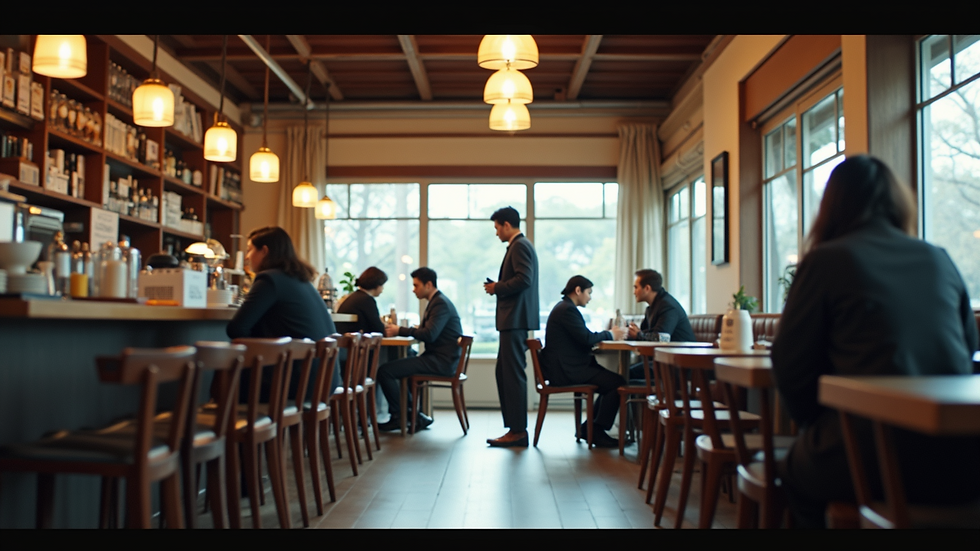10 Essential Japanese Phrases for Beginners
- da shino
- Aug 4, 2025
- 4 min read
Learning Japanese can feel overwhelming at first. But starting with simple, useful phrases makes it easier. These 10 essential Japanese phrases help you communicate in everyday situations. Whether you travel, work, or just want to chat, these phrases build your confidence. I’ll share clear examples and tips to use them naturally. Let’s dive into basic Japanese conversation phrases that anyone can master quickly.
Why Learn Basic Japanese Conversation Phrases?
Starting with basic Japanese conversation phrases gives you a strong foundation. You don’t need to memorize complex grammar or vocabulary right away. Instead, focus on phrases that help you:
Greet people politely
Introduce yourself
Ask simple questions
Show gratitude
Handle common social situations
These phrases open doors to real conversations. They also show respect for Japanese culture, which people appreciate. Plus, learning these basics makes it easier to pick up more advanced language skills later.
Here are some examples of essential phrases you should know:
こんにちは (Konnichiwa) - Hello / Good afternoon
おはようございます (Ohayou gozaimasu) - Good morning
ありがとうございます (Arigatou gozaimasu) - Thank you very much
すみません (Sumimasen) - Excuse me / Sorry
はい (Hai) - Yes
いいえ (Iie) - No
お願いします (Onegaishimasu) - Please (request)
わかりません (Wakarimasen) - I don’t understand
トイレはどこですか? (Toire wa doko desu ka?) - Where is the bathroom?
はじめまして (Hajimemashite) - Nice to meet you
Mastering Basic Japanese Conversation Phrases
To use these phrases well, practice them often. Say them out loud. Try to use them in real situations. Here are some tips:
Listen carefully to native speakers. Notice their tone and rhythm.
Repeat phrases until they feel natural.
Use polite forms like ございます (gozaimasu) to show respect.
Combine phrases to make simple sentences. For example, ありがとうございます + はい = Thank you very much, yes.
Don’t worry about mistakes. Japanese people appreciate your effort.
You can also write down phrases on flashcards or use language apps. This helps with memorization and quick recall.
If you want to practice speaking with a teacher, check out this beginner japanese conversation resource. It’s a great way to get real-time feedback and improve fast.
How do I start a conversation in Japanese?
Starting a conversation in Japanese is easier than you think. Begin with a simple greeting like こんにちは (Konnichiwa). Then introduce yourself with はじめまして (Hajimemashite), which means "Nice to meet you." Follow that with your name and a polite phrase like よろしくお願いします (Yoroshiku onegaishimasu), which means "Please treat me well" or "I look forward to working with you."
Here’s a simple example:
こんにちは。はじめまして。ジョンです。よろしくお願いします。
(Konnichiwa. Hajimemashite. Jon desu. Yoroshiku onegaishimasu.)
Hello. Nice to meet you. I’m John. Please treat me well.
If you want to ask questions, use ですか (desu ka) at the end of a sentence. For example:
お元気ですか? (Ogenki desu ka?) - How are you?
これは何ですか? (Kore wa nan desu ka?) - What is this?
Starting with these phrases helps you sound polite and friendly. It also encourages the other person to respond.

Using Polite Expressions in Business and Travel
Politeness is key in Japanese culture, especially in business and travel. Using polite expressions shows respect and professionalism. Here are some phrases to keep in mind:
お世話になっております (Osewa ni natte orimasu) - Thank you for your support (used in business emails and meetings)
失礼します (Shitsurei shimasu) - Excuse me (when entering or leaving a room)
どうぞよろしくお願いします (Douzo yoroshiku onegaishimasu) - Please take care of me (formal)
申し訳ありません (Moushiwake arimasen) - I am very sorry (formal apology)
When traveling, polite phrases help you get assistance and make a good impression:
すみません、助けてください (Sumimasen, tasukete kudasai) - Excuse me, please help me
英語を話せますか? (Eigo o hanasemasu ka?) - Can you speak English?
これはいくらですか? (Kore wa ikura desu ka?) - How much is this?
Using these polite phrases makes your interactions smoother and more pleasant.
Practice Makes Perfect: Tips for Remembering Phrases
Learning 10 essential Japanese phrases is just the start. To really remember and use them, try these tips:
Practice daily. Even 5 minutes a day helps.
Use flashcards with the phrase on one side and the meaning on the other.
Label items around your home with their Japanese names.
Watch Japanese shows or listen to podcasts to hear phrases in context.
Speak with native speakers or join language groups online.
Write simple sentences using the phrases you learn.
Remember, consistency is key. The more you use these phrases, the more natural they become.
Learning these 10 essential Japanese phrases gives you a solid start. They help you greet, ask questions, apologize, and show gratitude. Use them often and combine them with polite expressions. Soon, you’ll feel comfortable in many situations. If you want to take your skills further, consider joining a beginner japanese conversation class. It’s a fun way to build confidence and fluency.
Keep practicing, and enjoy your journey into the Japanese language!



Comments